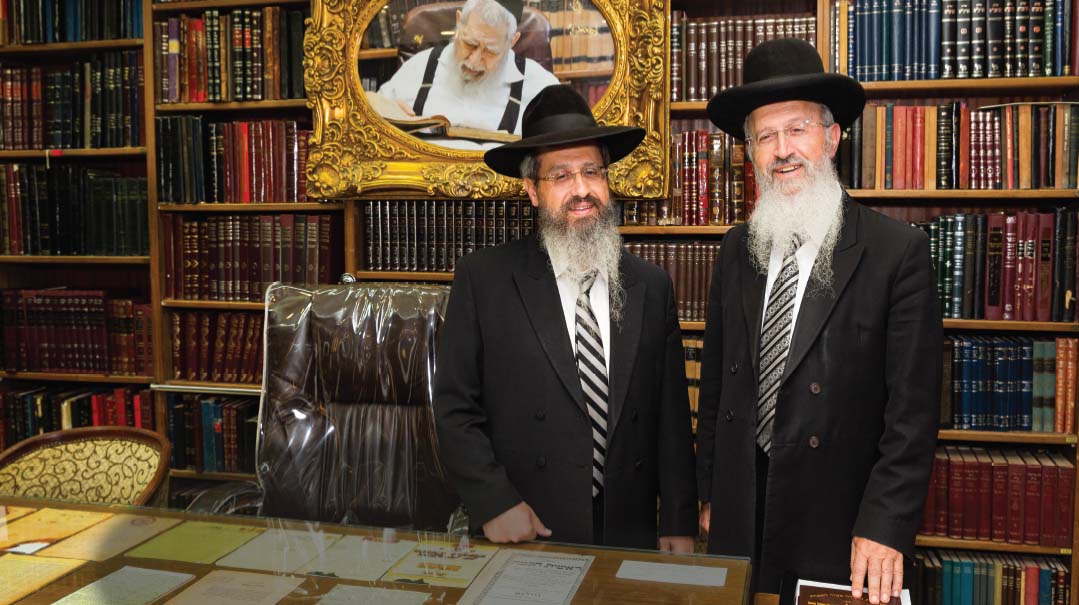Nothing’s Really Changed

Rav Ovadiah Yosef's sons relive the early years

Photos: Elchanan Kotler, Yaakov Sinai archives
Eight years have gone by since the passing of Rav Ovadiah Yosef ztz”l on 3 Cheshvan, but walk into his room in the apartment on Rechov Hakablan in Har Nof, and it’s as if life is still pulsating there. Everything remains exactly as he left it, open to the public with a warning taped to the bookshelves: “Please do not touch the seforim.” The old table is protected by a sheet of glass, and in a sealed display case are the traditional robe, silver cane, and the turban that were his trademark.
But today’s visit is more than just a glimpse into the room of this gadol, former Israeli chief rabbi, and the venerated Sephardi posek of the generation. It’s also a meeting of Rav Ovadiah’s oldest and youngest sons, two busy rabbanim who’ve come together to share their illustrious father’s legacy. Rav Avraham Yosef is former chief rabbi of Holon and Rav Ovadiah’s fourth of eleven children (five boys and six girls) and the oldest living son since the passing of Rav Yaakov Yosef ztz”l in his father’s lifetime. He’s here together with his youngest sibling, Rav Moshe, who heads the Beit Yosef kashrus and Maor Yisrael, the publishing firm dedicated to publishing his father’s writings.
Seventeen years separates them and so do the experiences of elder and youngest child growing up in the famous household. They’re at opposite ends of the family and had very divergent experiences growing up, encountering their father in very different settings and in the perceptions of the public. But at the core, the passion and focus of the father they both knew were one and the same.
This spacious apartment, of course, wasn’t their childhood home (although Rav Moshe and his wife Yehudit moved in as Maran’s caregivers in the later years of his life). Yet some things remain sacred no matter where they are. Neither of them, of course, dares take his father’s chair. “We’ll never sit in his place,” Rav Avraham says. The bedrooms, the living room, everything here has been converted into a giant Torah center, with a shul and publishing house dedicated to editing Rav Ovadiah’s massive stashes of writings.
“This spacious apartment, the extensive library — all this belongs to the later period of Abba’s life,” Rav Avraham qualifies. “When I was born, when we were growing up, we lived in dire poverty.”
He remembers the day when, as chief rabbi, Rav Ovadiah was given a luxury car and driver — it was 1973, and a Ford Gran Torino was placed at his disposal. “When the car was delivered to us, I saw Rav Eliyahu Shrem, a rosh yeshivah and our neighborhood rav at the time, crying. I asked him why, and he answered, ‘I remember when your father first came to Porat Yosef in the Old City, where I was the librarian. He would walk there in his tattered shoes with worn-out soles, so that his socks were always soaked from the rain. He’d walk into the library, wring out his socks, look through seforim while waiting for them to dry out a bit, and only then he’d enter the beit medrash. So how can I not weep when I see fulfilled before my very eyes Chazal’s promise that anyone who fulfills the Torah in poverty will live to fulfill it in wealth?’”
Oops! We could not locate your form.







